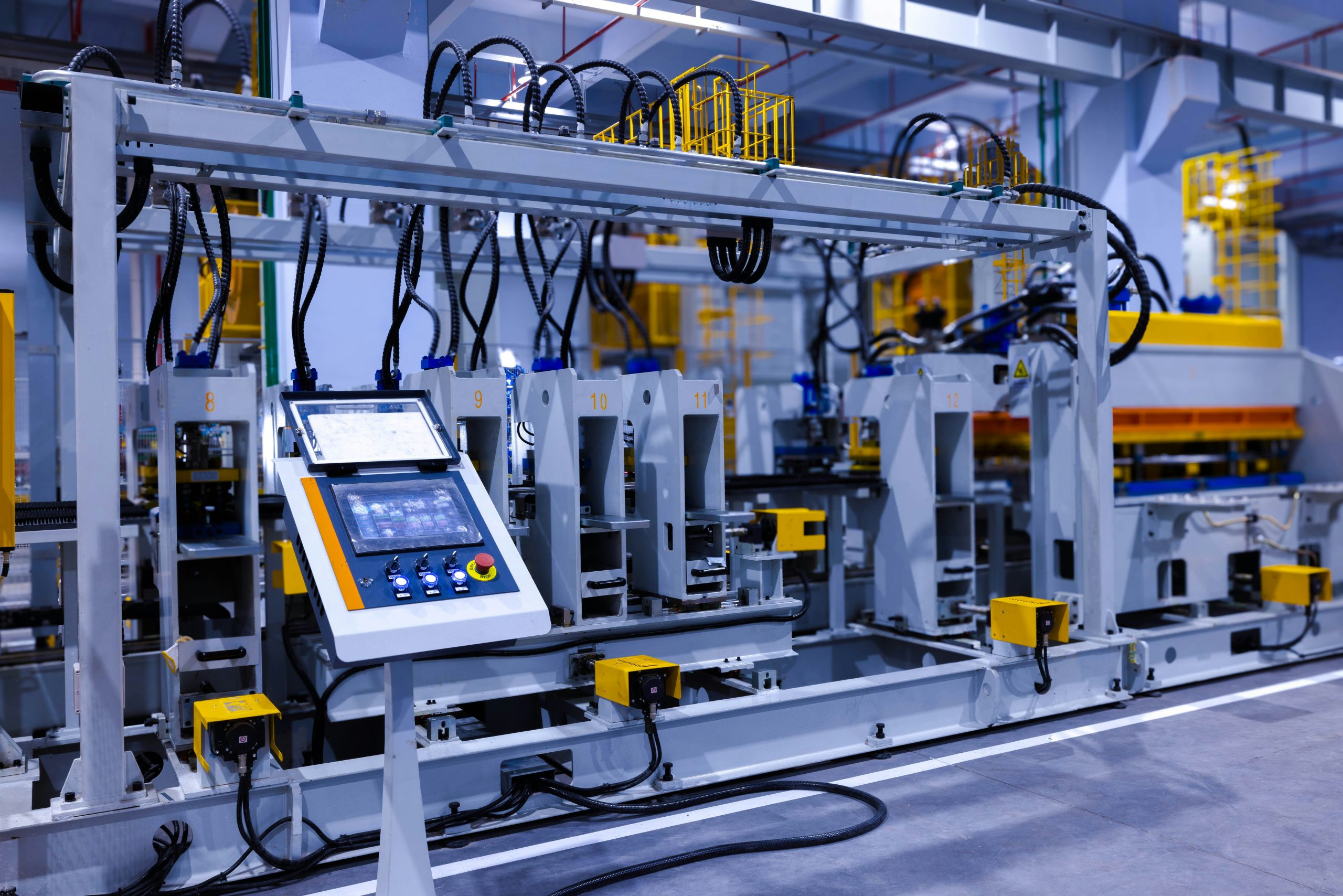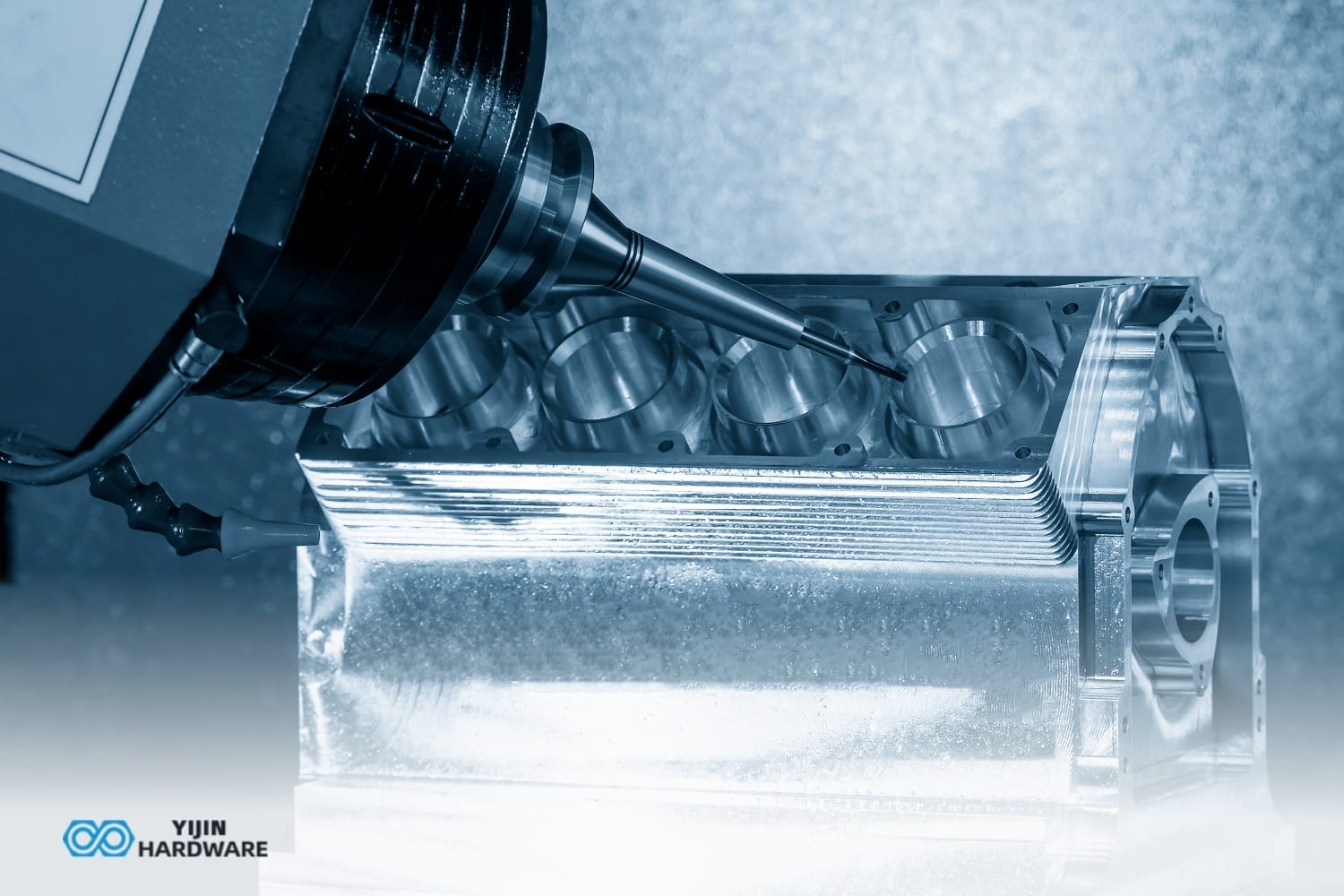When to partner with a tool and die maker for specialized projects
Exactly How CNC Machining Solutions Boost Effectiveness in Milling and Turning Procedures
CNC machining solutions play an essential function in improving effectiveness within milling and transforming processes. By using automation and exact control, these services lessen human mistake and assurance regular result. The ability to take care of complex geometries and preserve limited tolerances enhances manufacturing. The complete degree of CNC innovation's impact goes past standard performance gains. There are deeper ramifications and future trends that warrant more exploration.
The Basics of CNC Machining
CNC machining is a specific production procedure that makes use of computer-controlled devices to produce detailed parts and elements. This technology uses computer-aided style (CAD) software application to create in-depth models, which are after that equated right into machine instructions. The process normally entails different procedures such as milling, transforming, and drilling, making it possible for makers to achieve high levels of precision and repeatability.
CNC machines are geared up with sophisticated tooling that can adjust products like steel, wood, and plastic. They run through a collection of commands that dictate activities, rates, and tool changes, lessening human mistake and improving production efficiency.
The automation intrinsic in CNC machining permits tight resistances and complicated geometries to be regularly created, making it a recommended choice in markets calling for precision, such as aerospace and automotive. Comprehending the principles of CNC machining is important for valuing its duty in contemporary manufacturing procedures.
Advantages of CNC Machining in Milling
CNC machining offers significant benefits in milling procedures, specifically pertaining to accuracy and accuracy. This innovation not just enhances manufacturing speed but also allows for the production of complicated designs that would certainly be challenging to accomplish by hand. Therefore, businesses can enhance performance and increase their capabilities in production.
Precision and Accuracy
Achieving unparalleled accuracy and precision in milling processes is a hallmark of innovative machining methods. CNC machining solutions make use of computer-controlled systems that thoroughly implement designs with very little human treatment. This automation guarantees that each cut and contour is carried out to specific specs, significantly decreasing the risk of mistakes usually connected with hands-on milling. The capacity to produce intricate geometries with tight resistances is a crucial benefit, enabling manufacturers to meet rigorous high quality needs. In addition, CNC machines can maintain constant performance across multiple runs, guaranteeing harmony in manufacturing. This level of precision not just boosts product top quality yet also minimizes product waste, bring about much more efficient use sources. In general, CNC machining services reinvent milling processes via their dedication to precision and detail.
Raised Production Rate
Accelerating production speed is among the standout benefits of modern-day machining solutions. CNC machining substantially minimizes the moment needed for grating procedures by automating operations and reducing manual intervention. Machines can run continually, allowing for boosted output without compromising quality. The ability to program several tasks into a single arrangement better simplifies production, enabling manufacturers to complete complicated jobs in less time. In addition, CNC equipments maintain high-speed cutting capacities, causing quicker product removal and faster cycle times. This enhanced performance translates to shorter lead times, allowing companies to respond quickly to market needs. In general, boosted production speed via CNC machining not just enhances productivity yet also enhances affordable advantage in the production market.
Complicated Design Abilities
The capacity to develop complex designs is a substantial advantage of modern machining services. CNC machining enables the manufacturing of intricate geometries that would certainly be tough, if not difficult, to accomplish utilizing traditional approaches. This capability comes from sophisticated programs and automated devices that precisely adhere to digital plans, making certain accuracy and repeatability. As an outcome, suppliers can produce complex get rid of tight resistances, enhancing performance in different applications. Furthermore, the versatility of CNC devices allows fast changes to make specs without extensive retooling, streamlining the production procedure. This adaptability not only enhances creative thinking in style but also permits for effective testing and innovation, offering businesses an one-upmanship in the ever-evolving market.

Benefits of CNC Transforming Procedures
CNC transforming procedures provide significant benefits in manufacturing, specifically pertaining to accuracy and precision. These procedures enable the creation of extremely detailed elements with marginal resistances, guaranteeing quality in manufacturing. Additionally, the efficiency of CNC transforming adds to reduced preparations, making it possible for much faster shipment of ended up products.
Precision and Accuracy
Precision and accuracy are hallmark characteristics of CNC transforming procedures, setting them apart in the manufacturing landscape. These procedures utilize computer system mathematical control to guide reducing tools with unrivaled exactness. This leads to elements that satisfy rigid requirements and tolerances, lowering the likelihood of errors. CNC turning permits repeatable and consistent production, making sure that each component is virtually the same, which is vital in markets calling for high criteria, such as aerospace and medical devices - tool and die maker. Additionally, progressed software program and modern technology make it possible for real-time changes throughout machining, improving total top quality. By lessening human mistake and taking full advantage of control over the manufacturing procedure, CNC transforming solutions deliver superior precision and accuracy, making them a vital option for contemporary production needs
Lowered Lead Times
Reduced lead times are a significant advantage of CNC transforming processes, coming from their capacity to automate and maximize manufacturing. CNC turning machines operate with high effectiveness, enabling fast setup and execution of several tasks without the need for substantial hand-operated intervention. This automation lessens downtime and speeds up the production procedure, enabling quicker turn-around for orders. In addition, CNC innovation boosts consistency and minimizes errors, which better adds to faster manufacturing cycles. Consequently, businesses can satisfy tight due dates and react without delay to market demands. By leveraging CNC turning processes, companies can improve process, boost source allocation, and ultimately improve their one-upmanship via reduced preparations.
Precision and Accuracy in Manufacturing
While making procedures have actually evolved considerably over the years, the importance of precision and accuracy stays critical. In CNC machining, these 2 components are critical to generating premium parts that satisfy exact specifications. The assimilation of innovative computer system modern technology click for more enables thorough control over machining criteria, guaranteeing that parts are crafted with very little variance from designated styles.
Accuracy in making refers to the repeatability of processes, while precision denotes how closely a completed component lines up with its desired dimensions. CNC makers make use of innovative software application and devices that enable producers to accomplish both, visibly reducing the margin for error - fast prototyping. This capability is specifically vital in industries such as aerospace, vehicle, and medical, where even minor mistakes can cause disastrous failures

Decreasing Lead Times With CNC Modern Technology
CNC technology accelerates production timelines by improving the machining process. By automating jobs, CNC equipments decrease hand-operated intervention, significantly decreasing the time required for configuration and procedure. This performance allows producers to react quickly to market needs, fulfilling orders quicker than typical machining methods permit.
In addition, CNC innovation offers fast prototyping capacities, allowing for fast iterations and changes based on customer responses. The precision of CNC machining ensures that parts are produced correctly the very first time, reducing the likelihood of costly mistakes and revamp.
In addition, advanced organizing and programs abilities maximize process, permitting several operations to run simultaneously. This combination of technology not just reduces preparations but also boosts overall productivity. Eventually, the adoption of CNC machining services outfits manufacturers with the devices required to meet tight deadlines while keeping top quality criteria in production.
The Future of CNC Machining in Industry
As suppliers increasingly adopt CNC modern technology to streamline procedures and minimize lead times, the future of CNC machining in industry shows up appealing. Advancements such as expert system and device learning are set to change the abilities of CNC devices, enhancing their accuracy and versatility. These advancements will certainly assist in real-time tracking and predictive maintenance, lessening downtime and enhancing manufacturing performance.
The combination of Internet of Things (IoT) innovations will certainly enable better data collection and analysis, allowing suppliers to make enlightened choices that even more boost operational effectiveness. The increase of additive manufacturing alongside CNC machining is anticipated to enhance typical methods, giving greater design adaptability and product performance.
Furthermore, as sustainability becomes a concern, CNC machining is developing to include green techniques, which will draw in eco aware consumers. Generally, the future of CNC machining is characterized by continuous technology and adaptation, positioning it as a keystone of modern-day manufacturing.
Often Asked Inquiries
What Products Are Compatible With CNC Machining Solutions?
CNC machining solutions are suitable with different products, including metals like titanium, steel, and light weight aluminum, in addition to plastics such as acrylic and polycarbonate. Wood and composites likewise match CNC processes for varied applications.
Exactly How Does CNC Machining Contrast to Traditional Machining Methods?
CNC machining uses higher consistency, accuracy, and automation compared to conventional methods. It reduces human mistake, enhances manufacturing speed, pop over to this web-site and permits for complex layouts, making it an exceptional selection in modern production settings.
What Industries Advantage the A Lot Of From CNC Machining Providers?
The aerospace, vehicle, clinical, and electronic devices sectors benefit significantly from CNC machining solutions. These industries take advantage of rate, precision, and modification to boost product high quality while minimizing production prices and time, ultimately enhancing overall operational performance.
Can CNC Machines Deal With Facility Geometries and Styles?
CNC machines are proficient at managing intricate geometries and layouts, permitting accuracy and detailed detailing. Their innovative shows abilities enable suppliers to develop elements with high precision, conference varied sector demands and enhancing item performance.
What Is the Common Cost Range for CNC Machining Solutions?
The common cost array for CNC machining services varies commonly, usually falling in between $50 to $150 per hour, depending upon factors such as material, complexity, quantity, and redirected here the details machining processes employed.
CNC machining is a precise production process that utilizes computer-controlled machines to create elaborate components and components. CNC machining uses substantial advantages in milling processes, specifically regarding precision and precision. CNC machining considerably decreases the time required for milling processes by automating operations and lessening manual intervention. CNC innovation accelerates manufacturing timelines by streamlining the machining procedure. As suppliers significantly take on CNC modern technology to streamline processes and reduce lead times, the future of CNC machining in market appears appealing.